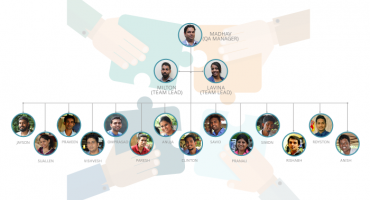How AI is Shaping the Future of Healthcare & Medical Technology
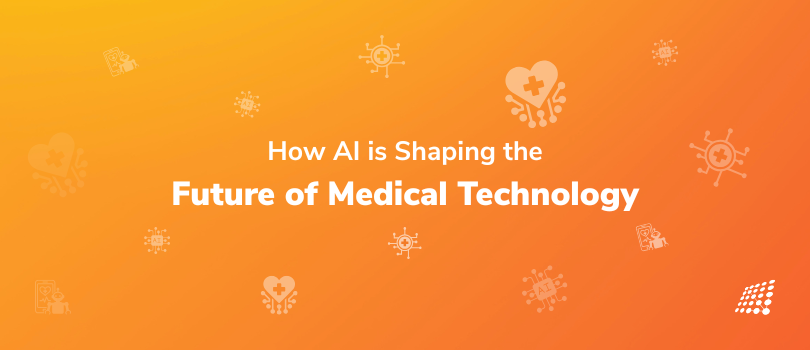
The TV shows and movies we watch have finally turned into a reality, and today, artificial intelligence is saving lives globally. Whether it’s catching a cancer diagnosis that human eyes don’t see, helping remote patients connect with experts overseas, or speeding up the search for breakthrough medications, AI in healthcare is making a noticeable impact.
Healthcare is undergoing its biggest shake-up since antibiotics arrived, and AI is at the heart of this change. Yet there’s a tough reality to face: almost half of the world—about 4.5 billion people—still doesn’t have access to basic healthcare. But here’s the silver lining: AI has real potential to narrow that gap.
Although healthcare has been a bit slower to embrace AI compared to other industries, the global AI in healthcare market is projected to reach about $187.69 billion by 2030, growing at an impressive rate of 38.62% from 2025 to 2030.
Here are some AI healthcare innovation trends that are changing the future of medical technology for the better.
Redefining Diagnosis through AI Technology
Picture a radiologist sifting through thousands of medical scans daily, their eyes starting to tire by the afternoon. With AI healthcare innovation, diagnostic medicine has improved and can identify patterns in medical images that might slip past human eyes.
Enhanced Imaging and Pattern Recognition
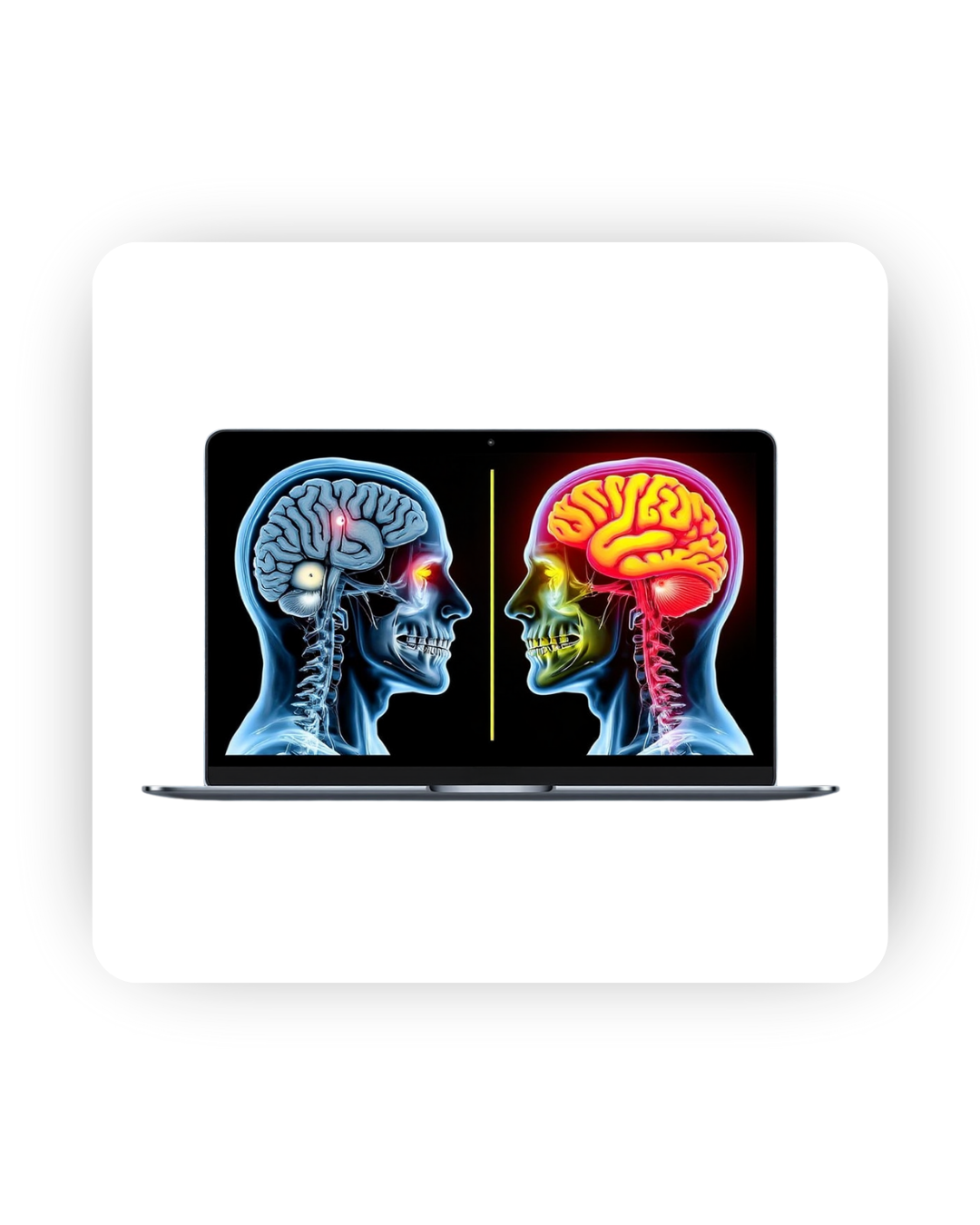
Medical imaging stands out as one of AI's standout successes in healthcare. It’s transforming how we approach diagnostic imaging by boosting accuracy, enhancing efficiency, and customizing healthcare delivery.
AI healthcare innovation can detect early-stage cancers precisely. Some studies suggest that AI improves breast cancer detection rates by 20% than traditional methods. Rather than replacing radiologists, these systems become relentless second opinions. These AI systems highlight potential concerns so doctors can focus their skills where they’re needed most.
Key Capabilities:
- Pattern Detection Excellence: Deep learning algorithms shine at spotting subtle patterns in medical images that humans may overlook.
- Multi-Modal Imaging Applications:
- Early cancer detection in mammograms
- Recognizing diabetic retinopathy in eye scans
- Accurately spotting pneumonia in chest X-rays
- Real-Time Analysis: By 2025, radiology departments anticipate diagnostics to be sharper than ever, merging high-resolution images with real-time data analysis.
Predictive Diagnostics and Risk Assessment
Today, healthcare systems are harnessing the power of AI to predict who might develop specific conditions before symptoms even appear. By digging into patterns found in patient data—like lab results and lifestyle choices—AI can flag individuals at high risk for heart disease, diabetes, or strokes, sometimes years ahead of time.
AI-driven predictive systems look at:
- Genetic Information: Factors like hereditary risks and genetic traits
- Lifestyle Factors: Elements including diet, exercise, environmental influences, and personal behavior
- Electronic Health Records: Past medical data and how patients have responded to treatments
Risk Prediction Applications:
- Assessing the likelihood of heart disease
- Identifying stroke risk
- Predicting the onset of diabetes
- Suggesting early intervention strategies
Predictive healthcare analytics is changing the game in proactive healthcare, helping us manage risks before they turn into serious health issues.
Customized Treatment Plans Enabled by Artificial Intelligence
Say goodbye to one-size-fits-all medicine! AI is bringing in a new age where treatments are personalized for each patient, considering their unique genetic traits, medical history, and lifestyle.
Precision Medicine and Genetic Analysis
Every person's DNA tells a distinct story, and AI is helping doctors understand what that means for treatment. By analyzing genetic variations alongside medical data, AI can identify which medications will be most effective and which ones might cause undesirable side effects.
Key Applications:
- Genomic Data Processing: Machine learning algorithms sift through complex genomic information to find the best therapies.
- Personalized Treatment Selection: Assessing individual genetic makeup, medical history, and lifestyle for tailored approaches.
- Treatment Optimization Benefits: This leads to fewer adverse drug reactions, better therapeutic outcomes, and less trial-and-error prescribing.
AI in Oncology: Tailoring Cancer Care

AI is revolutionizing cancer treatment by analyzing tumors at the molecular level. By studying cancer cells, AI can recommend targeted therapies that are more effective and have fewer side effects, significantly improving patients' outcomes and quality of life.
AI Oncology Applications:
- Molecular-Level Analysis: AI inspects cancer cells closely to inform treatment.
- Genetic Mutation Identification: It identifies specific mutations to choose targeted therapies.
- Treatment Personalization: Tailored therapy recommendations and optimized drug combinations that reduce side effects.
- Outcome Improvements: Achieving better results for patients across different types of cancer through precision medicine.
With AI leading the charge, customized treatments are set to transform healthcare for the better!
AI's Contribution to Medical Research and Drug Development
AI is making some serious waves in drug discovery and development. What used to take decades and cost billions is now happening quicker and more efficiently than ever!
Accelerating Clinical Trials with Data Analytics
Clinical trials are crucial for medical advancement, but they’ve often been slow, costly, and inefficient. Enter AI, which is revolutionizing the process by helping researchers find the right patients for trials, predicting which treatments are most likely to succeed, and even simulating outcomes before the trial begins.
AI Improvements in Clinical Trials:
- Patient Recruitment Optimization: Analyzing electronic health records to find suitable participants and using algorithms for quick criteria matching, leading to faster recruitment.
- Trial Design Enhancement: Modeling patient outcomes to predict success, optimizing trial protocols, and improving risk assessments.
- Data Analysis Acceleration: Real-time processing and pattern recognition in trial results allow for quicker decision-making.
Computational Drug Discovery and Development
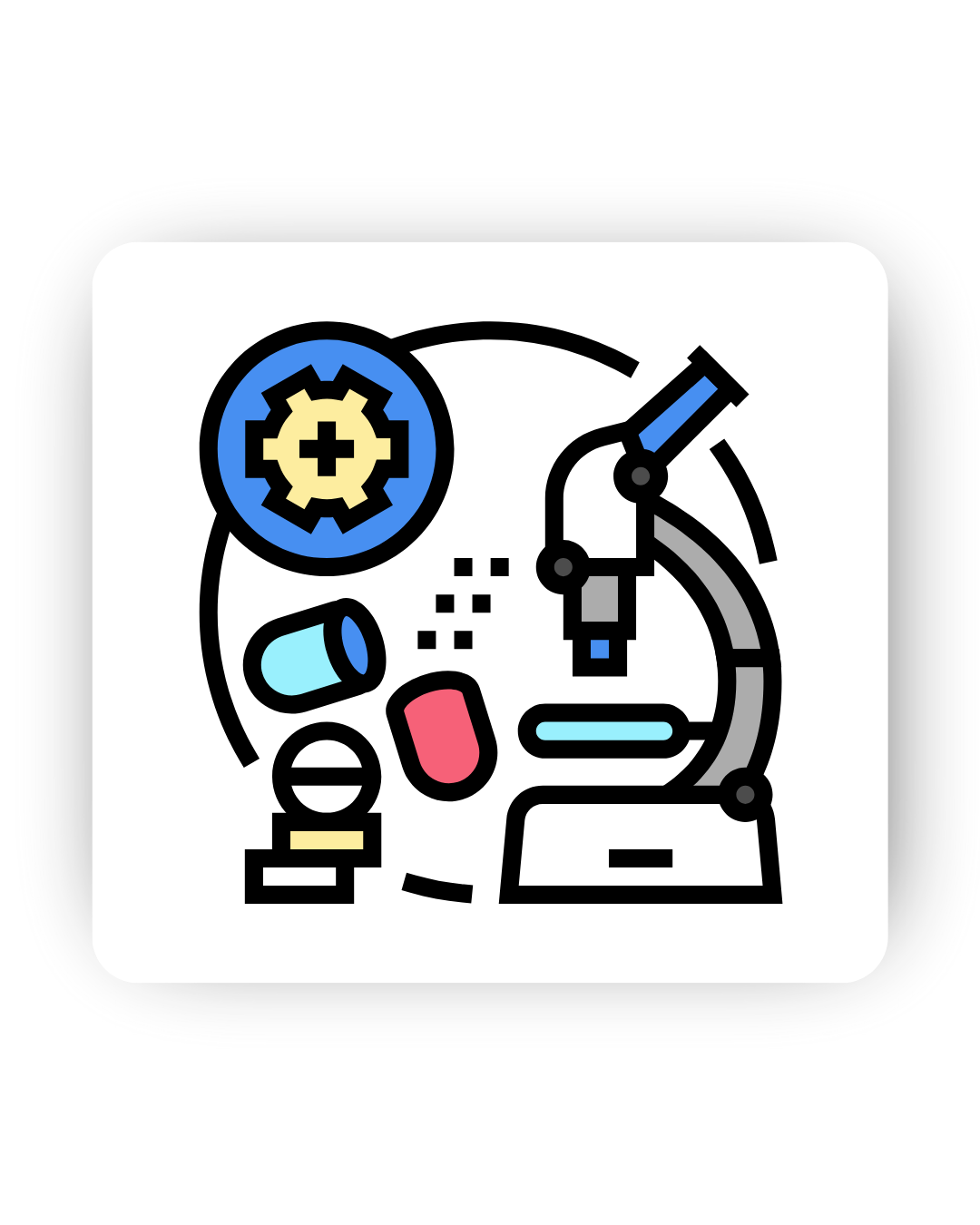
Traditional drug discovery often means testing millions of compounds to find a viable one. AI flips this model by predicting which molecules will be effective even before testing them physically. Currently, about 80% of professionals in the pharmaceutical industry are using AI in drug discovery, signaling a huge shift in how we develop new medicines.
AI Drug Discovery Capabilities:
- Molecular Simulation: Algorithms simulate how molecules interact and predict drug behavior.
- Toxicity Prediction: Early identification of potential toxicity issues in drugs.
- Compound Identification: Analyzing vast chemical libraries to pinpoint promising compounds.
Industry Examples:
- Insilico Medicine: Developing AI-generated drugs currently in clinical trials.
- Iambic: Utilizing advanced AI platforms for drug discovery.
- Recursion: Focusing on computational drug development programs.
Benefits: Using AI dramatically cuts down time and costs compared to traditional methods, although there are still challenges when it comes to translating AI predictions into clinical success.
AI is truly reshaping the landscape of medical research and drug development for the better!
Improving Patient Care with AI-Driven Solutions
While the flashy uses of AI often steal the spotlight, some of its most significant benefits are found in everyday patient care.
Personal Health Assistants and Monitoring Devices

AI health assistants are getting smarter, helping patients keep track of symptoms, manage chronic conditions, and know when it's time to seek medical help.
Key Features:
- Continuous Monitoring Capabilities:
- Tracking vital signs through wearables
- AI algorithms detect irregularities and send real-time alerts to both patients and healthcare providers.
- Smart Health Assistant Functions:
- Providing personalized health advice
- Sending medication reminders
- Offering lifestyle recommendations tailored to individual health data.
- Patient Empowerment Benefits:
- Encouraging proactive health management
- Helping identify problems early
- Fostering greater patient engagement in their care.
Virtual Nursing: AI in Postoperative and Chronic Care
Virtual nursing systems are changing the game by enabling remote monitoring of patients. Alerting healthcare providers to any concerning changes in vital signs or symptoms.
Virtual Nursing Capabilities:
- 24/7 Patient Monitoring:
- Always on tracking of recovery and health status.
- Early Complication Detection:
- Spotting potential issues before they escalate.
- Immediate Guidance Provision:
- Offering real-time support for patients
- Assisting staff with recommendations and treatment protocols.
- Chronic Disease Management:
- Analyzing patient data in real-time
- Adjusting treatment protocols
- Optimizing personalized care plans.
Addressing Challenges and Ethical Considerations in AI Healthcare
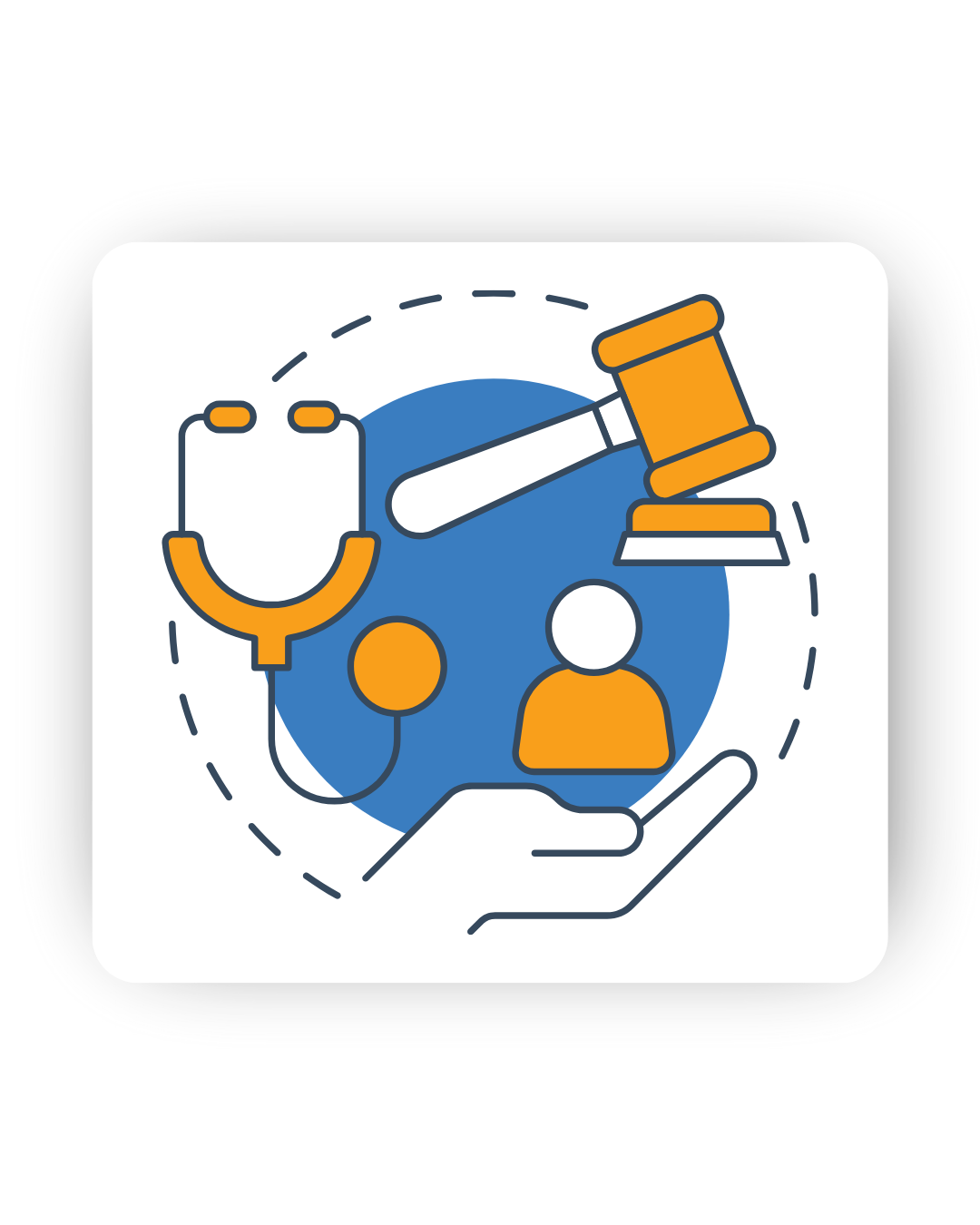
The integration of AI-driven healthcare trends brings many challenges.
Data Privacy and Security in Digital Health
The use of AI in healthcare raises serious concerns about the privacy and security of patient data. Healthcare organizations must take comprehensive steps to protect sensitive information.
Current Regulatory Landscape:
- European Union Approach:
- The EU AI Act of 2024 introduces a bold risk framework but lacks specific provisions for AI liability and demands rigorous data protection.
- United States Standards:
- HIPAA establishes important data privacy standards, though its scope is somewhat limited for newer AI applications, with regulations constantly evolving.
- Organizational Requirements:
- Implementing strong cybersecurity measures
- Staying compliant with changing regulations
- Regularly monitoring and updating security protocols.
Balancing Human Touch with AI Efficiency
No doubt, artificial intelligence in medicine is promising, but prioritize human involvement in digital health transformation.
Key Considerations:
- AI Integration Principles:
- AI tools should support, not replace, human judgment.
- Preserve compassionate patient care and the doctor-patient relationship.
- Healthcare Provider Training Requirements:
- Training on effective use of AI systems
- Optimizing technology-human interactions
- Keeping the focus on patient relationships.
- Quality Care Preservation:
- Ensuring human empathy and understanding remain central.
- Valuing clinical expertise and intuition.
- Personalizing communication with patients.
The Future of Medical Technology
The future of medical technology has only just started to open up opportunities. Soon, there will be systems that predict health issues years before they show up, personalized treatment plans depending on how patients respond and adapt, and even AI-designed drugs that target currently incurable diseases.
Future Developments:
Quantum Computing Integration: AI will process complex biological data on a new scale.
Standardized Personalized Treatments: AI-driven personalized treatments will become the norm. There will be real-time health monitoring and telemedicine, so specialist care is accessible to patients even in remote areas. Predictive interventions will help prevent diseases before they arise.
Advanced Diagnostic Capabilities: There will be AI healthcare innovation in pattern recognition, multi-modal data integration, and predictive health modeling.
Fostering AI Innovation for Global Health Solutions
AI holds immense potential to tackle global health challenges, helping to democratize access to quality healthcare and addressing health disparities worldwide.
Global Impact Areas:
- Healthcare Access Democratization: Ensuring quality care reaches underserved regions through remote diagnostics and enhanced telemedicine.
- Global Health Challenge Solutions: Reducing healthcare disparities, improving pandemic preparedness, and optimizing resources in developing areas.
Collaborative Requirements:
The future of medical technology is all about collaboration among technologists, healthcare professionals, regulators, and patients. The aim isn’t to replace human expertise but to enhance it, so that we have a healthcare system that is more accurate, accessible, and effective. If you need more help, reach out to us!

Developing Leadership Skills and Taking Accountability: How-To Guide

T (Together) E (Everyone) A (Achieves) M (More)
